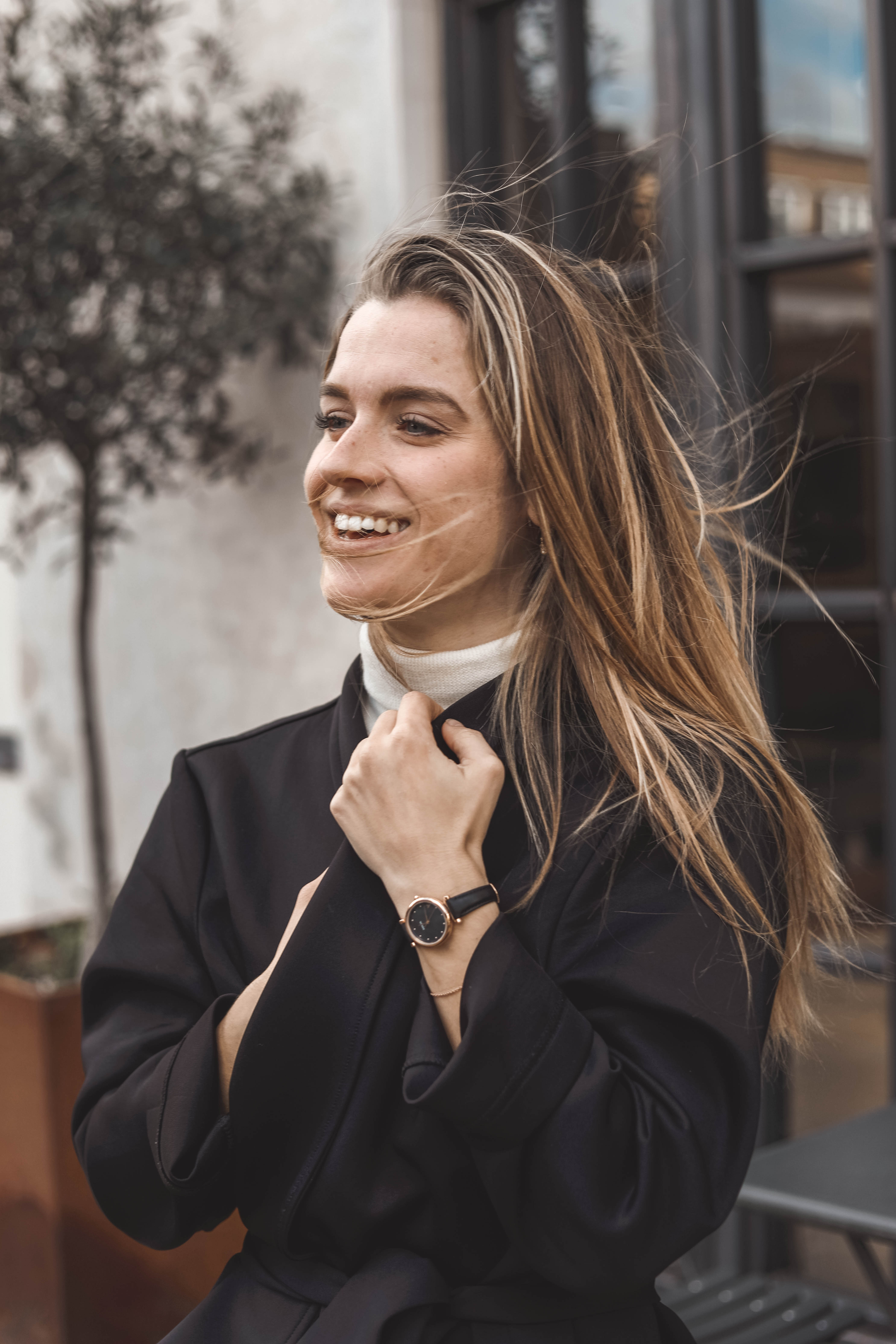We caught up with social media influencer and all round warrior princess @foodfitnessflora about social media anxiety, online abuse and negativity and her top 4 things to think about before you write something negative online.
Tell us a bit about yourself
I am a food and fitness blogger and social media consultant working in the area of health and wellness. My background is in science communications, so I always try to add a little bit of science into everything I do.
I started my Instagram account about 7 years ago whilst recovering from an eating disorder, as a way to track my meals and show them to my doctor. I then started putting up other bits from my fitness training and my life, such as talking more about mental health. My blog started in 2016 and is my baby – I love writing!
What is your experience of cyberbullying?
My first experience of cyberbullying was talking to blogger friends who had received it. It brought back a lot of memories – thankfully I was never cyberbullied at school, but I received my fair share of nasty comments to my face, and watching other people being attacked or made the subject of online and playground gossip was really upsetting for me to see.
You have mentioned you have received more abuse recently, would you mind telling us about it?
I think once you get to a certain number of followers on Instagram, negative comments are bound to happen. Whether they’re in your DMs or online they find their way to you somehow and, unfortunately, I think I’ve reached that point!
Recently, I also discovered some messages online following running the Tokyo marathon that were pretty nasty. Most were along the lines of telling me that I’m not good enough and then spreading other rumours about my relationship and friends.
Initially I read negative comments to see where I might be able to improve my account and make it more useful to my followers, but at the point that the comments became nasty or simply just lies, I decided to block the sites. I still get the occasional message through but I don’t mind that – at least it’s usually not anonymous, which is the main cause of particularly horrible comments.
What about friends in the blogging/social media influencer sphere – have they experienced the same?
Absolutely, I’m yet to find a blogger who hasn’t received hate online. Of course, there’s a line between hate and negative comments (it’s obviously impossible for everyone to like you), but I think everyone I know who has the same job has received their fair share of both.
What do you think needs to be done about it? Or what CAN be done about it?
This is a really good question.
I would like to see more education around the issue. Currently people can have easy access to sites and accounts where people are spreading hate, slander and defamation, without any repercussions. It would be nice if there was increased education around general behaviour on the internet, similar to how we are all taught that cyberbullying and teasing for ethnicity/gender/sexual orientation etc at school is not allowed, and where to go if we feel we are experiencing it.
I also with that reporting stuff to the police was wasier, and that social media sites worked faster to deal with online nastiness, bullying and abuse. Currently the response to ‘I’m being abused online’ is ‘don’t go online’, and that’s unacceptable. It shouldn’t be the job of those being affected by this to simply avoid the spaces where this happens. Also, a large number of the people who are receiving these messages earn their living through being present online. As a social media consultant and blogger I am incapable of not using social media, and my popularity is, in part, due to my vulnerability and openness online.
I absolutely don’t have all the answers and this is what we have charities such as Ditch the Label for, but primarily I wish there was more of a discussion around the issue. As far as I can tell, even the large number of celebrities and influencers who have talked about it have not prompted any real lasting change. Sadly, online hate is still happening, it’s still contributing to the poor mental health of a lot of people and in its worst cases has contributed to people’s deaths.
Obviously, your job relies on social media so you can’t get a break from it – what affect does being around abuse frequently have on you?
It’s not just comments about me that affect me. As much as anything, I hate to see bullying of anyone online, and sadly I have seen my fair share. At the height of the horrible comments directed at me, I was experiencing extreme anxiety where I was unable to eat or sleep properly. Having suffered from quite bad depression in the past I found that week extremely tough, and became worried that I might be slipping back into much darker days.
Perhaps I am over sensitive and shouldn’t ever have chosen to start up an Instagram, but I’m here now and I truly believe my account really helps people, so don’t exactly feel like I can leave. And how could I have foreseen, 7 years ago, with the start-up of my private Instagram, that 7 years later people would be commenting on my parents’ jobs and spreading rumours about my sex life?
I try to have low-Instagram days where I don’t spend more than 30 minutes on any form of social media that day. This happens every one to two weeks and is a godsend for my mental health! I actually think everyone should do that, regardless of whether they’re an influencer or consumer and suffering from abuse or not, and I’ve been practising it for about a year, since my career on Instagram started becoming more serious.
What advice would you give to a young person who is getting abuse online right now?
First of all, talk to people. Our brains are naturally wired to pick up negative comments and blow them hugely out of proportion. Talking to people brings you back to reality – NOT everyone hates you, no matter how it may feel, and surrounding yourself with people who support and love you can really help balance things out.
Spending more time off social media as a coping mechanism can be helpful, but of course isn’t possible for everyone. If possible, speak up about the abuse you’re receiving. Suffering in silence can make you feel like you’re unable to do anything about it. For me at least, talking about it makes me feel less helpless.
What does the future look like for you?
Contrary to what people might think, my ideal social media world would not be one where people are not allowed to comment negatively on what other people do. That’s not only unrealistic, but it stops any debate or healthy discussion. But I would like the future would be a more balanced one, one where negativity is constructive and not simply to hurt feelings.
Ideally, influencers would take more responsibility for what they put online and would be held more accountable for sharing potentially harmful information. We have to be responsible in what we put out there to the public. And if the public have an issue with what we say/promote, there should be somewhere where it can be discussed so it is not simply a barrage of abuse online.
[full-width-figure image=”https://dtl-staging.org/2020/wp-content/uploads/2019/05/boxing13-e1558601001771.jpg”]
@FoodFitnessFlora’s Top 4 Things to Consider Before You Write Something Negative Online
1) Would you say what you’re saying if it wasn’t anonymous?
If not, it’s probably best not to say it
2) Can the person you’re writing to/about do anything about what you’re going to say?
So, for example, are you hating on them because they did an advert you didn’t like? If so, that may be a great thing to discuss and debate (e.g. I didn’t like that ad you did because it targets young girls’ insecurities and I think that’s irresponsible). But if it is because you think they looked fat or had cellulite or stretch marks or spots, it’s unnecessary. Absolutely no one is 100% perfect all the time, and there is nothing we can do about that.
3) It’s also about the way you say something.
‘I believe/in my opinion’ is very different to stating your opinion/gossip as fact, which could be seen as defamation e.g. X totally cheated on their partner of 5 years with X’. That could cause serious issues down the line. Just because some of someone’s life is online, that doesn’t mean the rest of their existence is available for comment.
4) Why are you commenting what you are commenting?
If you think someone has done something wrong, by all means message them. I can’t speak for everyone, but I would always rather receive constructive criticism to my face/in my DMs to discuss rather than read about it in a forum where it is impossible to discuss and come to a solution. It is also usually much better worded/thought out!
But so much of what I have received is not like this at all, and is instead just mean and hurtful. Abuse is an outlet for frustrations that feels good in the moment. But it really doesn’t solve anything, for you or for the person you writing to.
If you have been affected by negative comments or abuse online, you can reach out to the Ditch the Label Community here.













